Jailed Khan Looms Large Over Flawed Pakistan Election
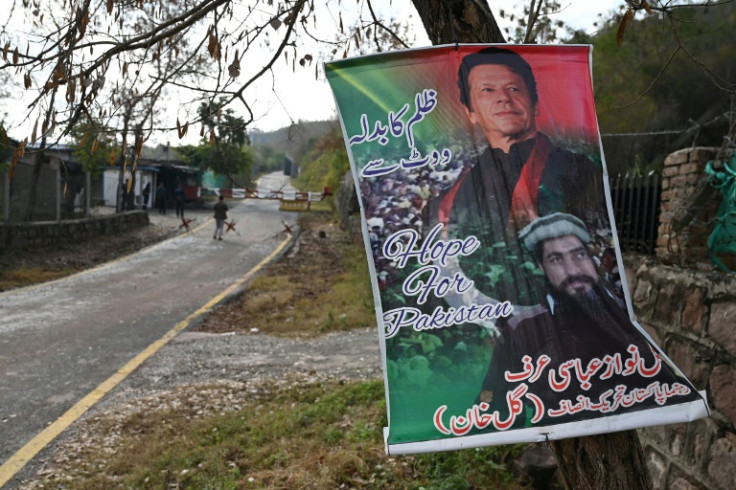
Pakistan goes to the polls this week in an election that rights observers have dubbed deeply flawed, with the country's most charismatic politician languishing in jail, barred from taking part.
The nuclear-armed nation of 240 million people presents itself as the world's fifth largest democracy, but judicial hounding of former prime minister Imran Khan has some questioning that claim.
In the past week Khan, a former international cricketer who led Pakistan to victory in the World Cup in 1992, has been sentenced to lengthy jail terms for treason, graft, and an illegal marriage.
Analysts say the character assassination shows how worried the military-led establishment is that his Pakistan Tehreek-e-Insaf (PTI) party could still prove a decisive factor in Thursday's vote.
"I am sure they are worried about it, and the military doesn't have the capacity to put in a fix at national level," said analyst Shuja Nawaz, author of "The Battle for Pakistan", a book examining Islamabad's relations with Washington.
"PTI can squeak in with a sizeable number and still be a player," he told AFP.
Shuja said while Western nations were avoiding making any comment on the political chaos gripping Pakistan, they were still watching events closely, worried about the risk of insecurity.
"In a broad sense, an election in Pakistan is a mere blip on the radar, given all the crises proliferating around the world," said Michael Kugelman, director of the South Asia Institute at the Woodrow Wilson International Center for Scholars in Washington.
"But let's be clear: Pakistan's polls do matter."
The country has been run by the military for much of its history since partition from India in 1947, and occupies a strategic space neighbouring also Afghanistan, Iran and China.
It has been at the centre of the so-called "war on terror", with Al-Qaeda founder Osama bin Laden finding shelter in the country until he was killed in a Navy Seal commando raid in 2011.
The architect of the 9/11 attacks on the United States, Khalid Sheik Mohammed, is a Pakistani, now incarcerated at Guantanamo Bay.
The strategic importance is highlighted by the fact that Beijing made the China-Pakistan Economic Corridor (CPEC) the centrepiece of its trillion dollar Belt and Road initiative, giving the world's most populous nation access to the Arabian Sea and beyond via an "all-weather friend".
The country itself, however, appears permanently in crisis.
Deeply in debt, the economy has for decades been propped up by successive bailouts from the International Monetary Fund and loans from wealthy gulf Arab nations who use Pakistanis as cheap labour.
Inflation is galloping at nearly 30 percent, the rupee has been in freefall for three years -- losing nearly 50 percent of its value since 2021 -- and a balance of payments deficit has frozen imports, severely hampering industrial growth.
The Pakistan Muslim League-Nawaz (PML-N) is expected to win the most seats in Thursday's vote, giving its 74-year-old founder Nawaz Sharif a fourth shot at running the country.
He will most likely have to form a coalition with one or more junior partners -- including the Pakistan Peoples Party (PPP), another family-run dynasty now led by Bilawal Bhutto-Zardari.
But the showing of PTI's candidates -- forced to run as independents since the party was barred from competing as a bloc -- will be crucial.
"No party will get an outright majority, leaving the top finishers -- likely led by the PML-N -- to put together what will probably be a weak coalition susceptible to heavy influence by the military," predicted Kugelman.
"If PTI loses, its large support base -- already reeling from crackdowns on the party -- will be highly aggrieved."
His supporters took to the streets last May after Khan was first arrested, a year after he was booted from office following a National Assembly vote of no-confidence.
Khan claims his dethroning was orchestrated with the help of Washington, angered by his visit to Moscow the day after Russia invaded Ukraine and his refusal to take sides in that conflict.
Khan is out of the picture for now, sentenced to prison terms of 14, 10 and seven years in three hastily-run trials held inside a prison court last week.
But disgrace rarely lasts long in Pakistan politics -- frontrunner Sharif was himself sentenced to lengthy jail terms and exile abroad, only to have the convictions quashed when his party's fortunes improved.
It all depends on the mood of the military, said Munizae Jahangir, co-chair of the Human Rights Commission of Pakistan (HRCP).
"They first make up all these leaders and then they demolish them," she told AFP last week.
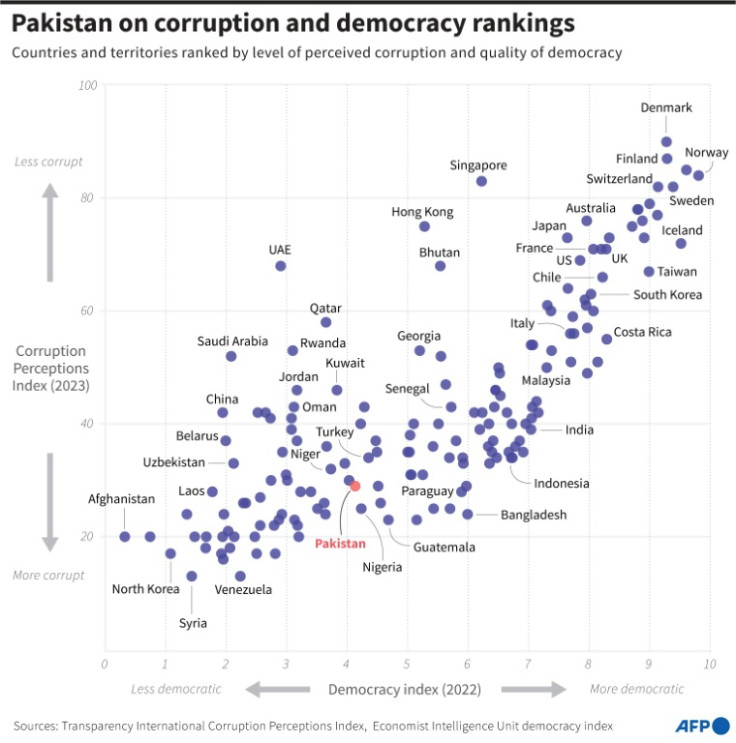
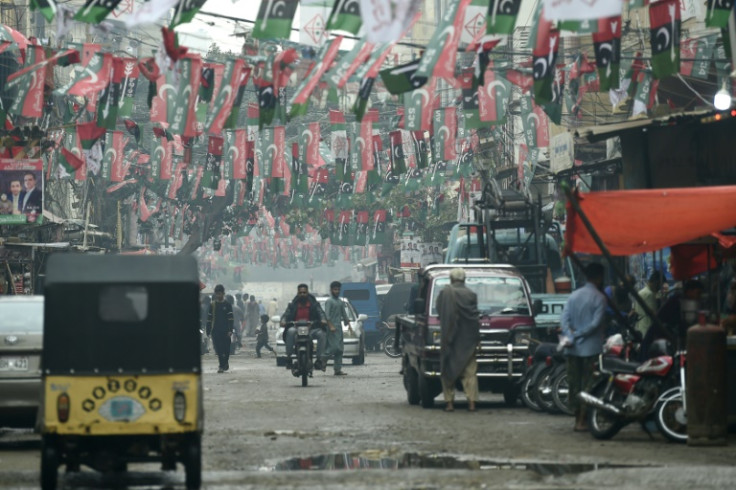
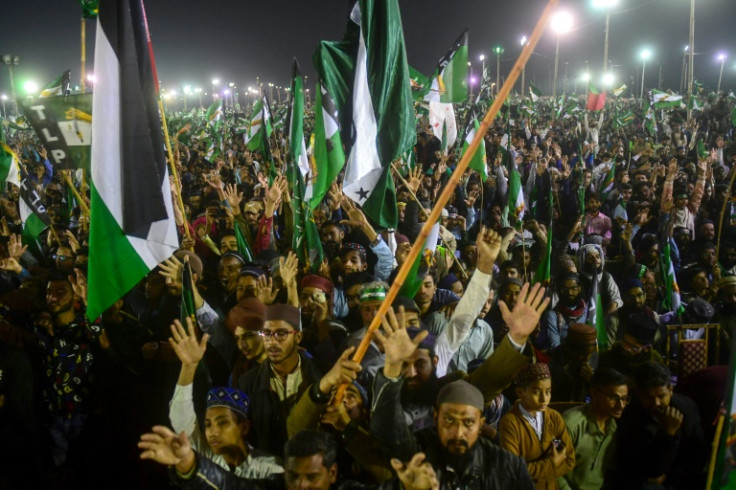
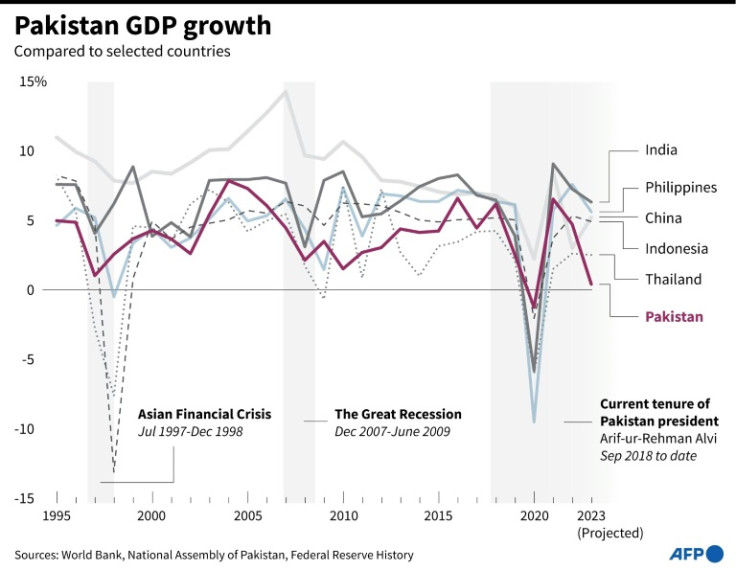
© Copyright AFP 2025. All rights reserved.




















